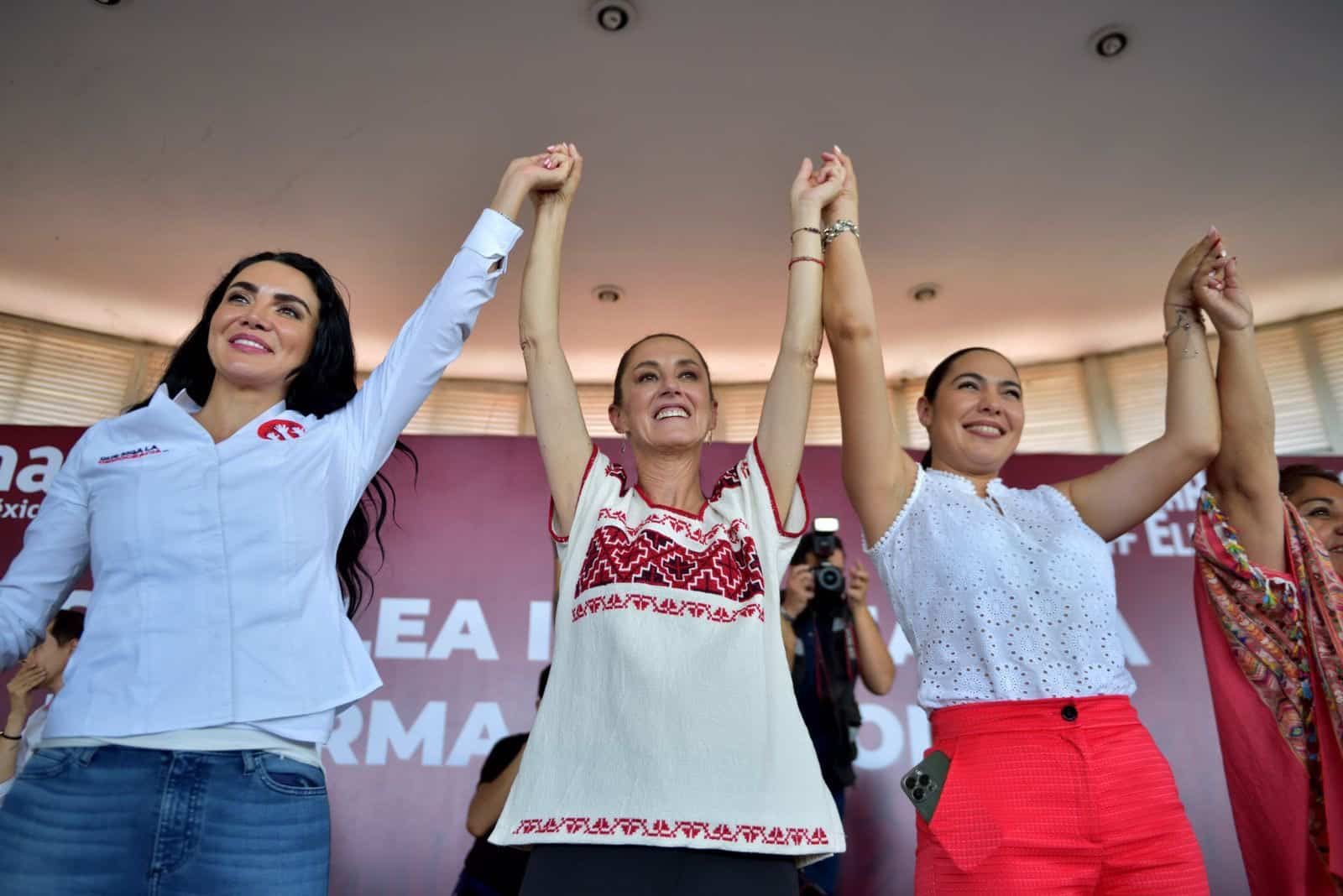MEXICO CITY (CN) — Despite orders from federal electoral authorities to obey laws limiting political campaigns to the three months leading up to election day, several Morena party presidential hopefuls appear to continue stumping ahead of the 2024 vote.
Mexico’s National Electoral Institute (INE) issued an order to 30 members of the ruling Morena party on July 5 to stop campaign activities after it deemed an event in the state of Coahuila in late June a campaign rally.
It issued another order on July 20 after a similar event in the state of México, which, along with Coahuila, holds state and local elections in 2023.
Aside from President Andrés Manuel López Obrador, the most notable figures listed in the orders are four aspirants to the executive branch: Mexico City Mayor Claudia Sheinbaum, Foreign Secretary Marcelo Ebrard, Interior Secretary Adán Augusto López and Senator Ricardo Monreal.
In July 2021, López Obrador named these and other political allies as possible candidates for Morena in 2024, claiming to do away with the Mexican political tradition of keeping a lid on one’s successor — the “tapado” — until the last minute before elections.
“There are no more tapados, I am the bottle opener and my favorite bottle cap will be that of the people,” he said in a press conference that month.
Thus, Ebrard, Sheinbaum and others came to be known as the “bottle caps” in the current political jargon in Mexico, and they appear to be working very hard to win the people’s — and thus, the president’s — approval far earlier than the law allows.
Seemingly undeterred by the orders from the INE, they have been crisscrossing the country to attend events and meetings this month.

Sheinbaum traveled out of the capital over the weekend to attend events in Hidalgo and Colima. In a photo taken in Colima and posted to her Twitter account, people in the crowd can be seen holding signs supporting Sheinbaum as their choice for candidate.
On Saturday, Ebrard met with supporters in Ecatepec, México state. Afterward, he thanked them on Twitter for their support of the president and his plan to eliminate corruption and alleviate poverty known as the Fourth Transformation.
López and Monreal also made trips across the country to attend similar events in recent days.
The INE, however, does not view these particular actions as campaign events. The aspirants are walking a “very fine line” in order to steer clear of election authorities, according to Claudia Zavala, an electoral consultant at the INE.
The INE does not actively monitor and regulate such actions, but rather responds to reports from third parties before investigating. The orders issued after the events in Coahuila and México state were the results of a report made by members of the opposition Party of the Democratic Revolution.
The so-called "bottle caps" can avoid being reported “if they do not talk about the position of the political party in the context of the electoral process,” said Zavala.
Political analysts in Mexico view the issue from both sides of that fine line.
“It opens up a very interesting debate over whether or not it really is campaigning,” said Enrique Gutiérrez Márquez, a political scientist and professor at the Ibero-American University.
“Obviously, some read this as political campaigning, while others see it as ordinary political activity that all parties engage in,” he said.
Such actions lie “on the edge of what the legislation allows,” Gutiérrez said, but he did not consider them to be political campaigning, “although these meetings clearly draw attention to the possible candidates.”

While the line between campaigning and simply making oneself visible to the public is a blurry one, Gutiérrez said he believed the average citizen capable of making the distinction.
But that line is much easier to draw from the other side.
“It is indeed political campaigning,” said José Antonio Crespo, a political analyst with the Mexico City-based think tank CIDE.
“The law regulating political campaigns was promoted by López Obrador and others who are now in Morena, because they were in the opposition, and now that they’re in power, it’s standing in their way,” he said.
Campaign period regulations were part of a 2007 reform to the election authority, the year following López Obrador’s loss to Felipe Calderón, an election the former and his supporters vigorously contested.
Crespo considered the recent events and other actions, such as the use of public resources for political campaigning during López Obrador’s revocation of mandate vote in April, to be electoral crimes, but did not expect anyone in the party to be held responsible for them.
The head of the specialized prosecutor’s office for electoral crimes, José Agustín Ortiz Pinchetti, is a Morena party member, and “he’s not going to go against his fellow team members,” Crespo said.
“The fact that Morena controls that office is like when the Institutional Revolutionary Party controlled the electoral institutions, something López Obrador and many others now in Morena always criticized,” he said.
“In the hands of Morena, the electoral crimes prosecutor’s office isn’t going to do its job,” Crespo added. “And so they’re going to keep breaking the law without giving it a second thought.”
Subscribe to Closing Arguments
Sign up for new weekly newsletter Closing Arguments to get the latest about ongoing trials, major litigation and hot cases and rulings in courthouses around the U.S. and the world.









